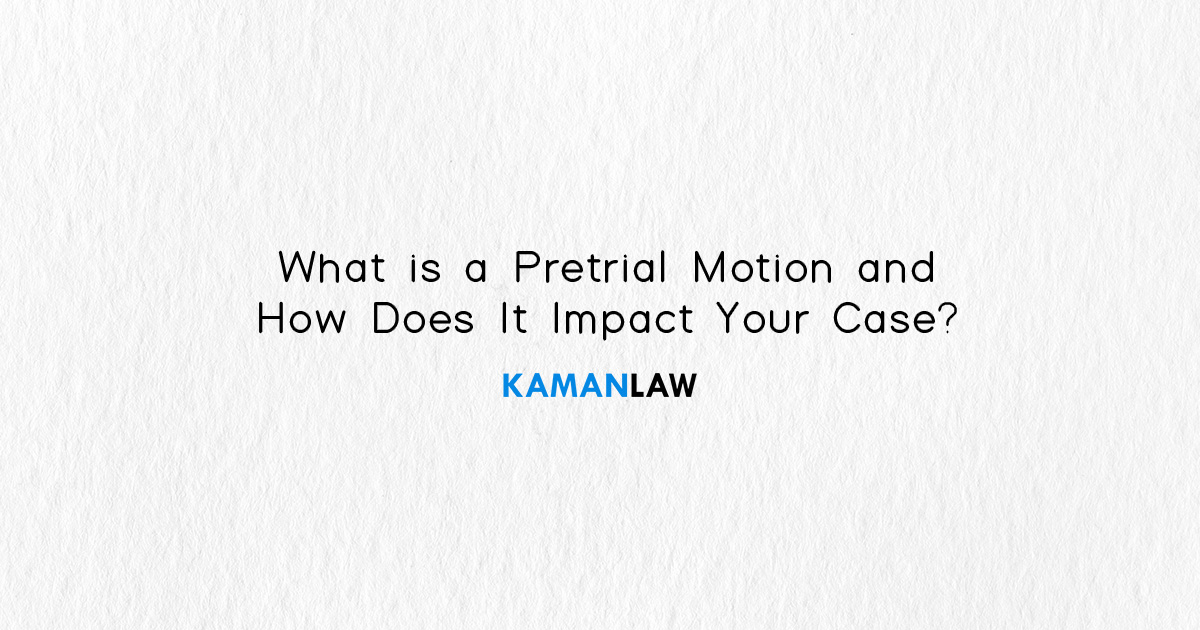In the United States legal system, a pre-trial motion is a formal request made to the court before a criminal or civil trial begins. Filed by either the defense or the prosecution in criminal cases, or by either party in civil cases, these motions aim to resolve specific issues and set the parameters for the trial. Understanding pre-trial motions is crucial for anyone involved in legal proceedings, as they can significantly impact the course and outcome of a case.
Types of Pre-trial Motions
Pre-trial motions can address a wide range of legal issues. Some of the most common include:
- Motion to Dismiss: Seeks to have the case thrown out before trial, often due to insufficient evidence, lack of jurisdiction, or other legal deficiencies.
- Motion for Summary Judgment (in civil cases): Requests the court to rule in favor of one party based on the evidence submitted, arguing that there are no factual disputes requiring a trial.
- Motion to Suppress: Aims to exclude certain evidence from the trial, typically because it was obtained in violation of the defendant’s constitutional rights.
- Motion for Change of Venue: Requests that the trial be moved to a different location, usually due to concerns about finding an impartial jury.
- Motion in Limine: Seeks to have specific evidence or testimony excluded from the trial, often to prevent prejudice.
Impact on Your Case
Pre-trial motions can profoundly affect the trajectory and outcome of a legal case in several ways:
- Determining the Evidence: By deciding what evidence is admissible, pre-trial motions can shape the jury’s perception and the overall direction of the trial. For example, a successful motion to suppress can remove critical evidence from the prosecution’s case in a criminal trial.
- Resolving the Case Early: Motions to dismiss or for summary judgment can lead to the early resolution of a case, saving time, money, and resources for both parties.
- Influencing Trial Strategy: The rulings on pre-trial motions inform the legal strategies that both sides employ during the trial. Parties may adjust their approaches based on what evidence and testimony are allowed.
- Setting Legal Precedents: Decisions made during pre-trial motions can set precedents for how similar cases are handled in the future, especially if the motions address novel legal issues.
Conclusion
Pre-trial motions are a critical aspect of the legal process, offering a mechanism to address specific legal questions and concerns before a trial begins. They have the potential to significantly influence the proceedings, from determining the admissibility of evidence to potentially resolving the case without the need for a full trial. Understanding the nature and potential impacts of pre-trial motions is essential for anyone navigating the legal system.
References
- Legal Information Institute, Cornell Law School. “Pretrial Motions.” https://www.law.cornell.edu/wex/pretrial_motions
- United States Courts. “Motions During Trial.” https://www.uscourts.gov/about-federal-courts/types-cases/civil-cases/motions-during-trial









Leave a Reply